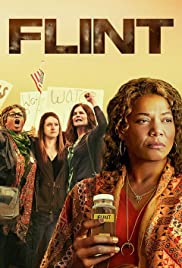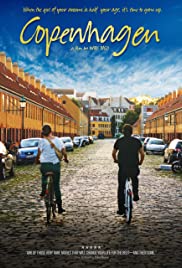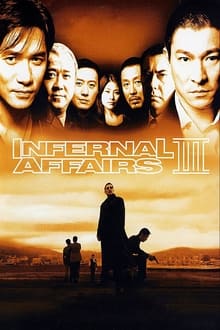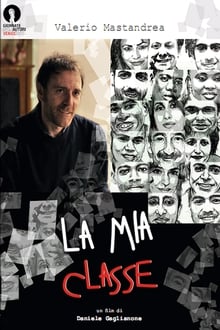
A woman deals with the toxic water scandal in Flint, Michigan, and the effect it has on her family.
You May Also Like

In 1974, after years of civil war, the Portuguese and their descendants fled the colony of Angola where groups working for independence gradually claim their territory back. A tribal girl discovers love and death when her path crosses that of a young Portuguese soldier. Meanwhile, another group of Portuguese soldiers is barracked inside an infinite wall from which they will have to escape once the past comes out of the grave to claim its long-awaited justice.

On the Arabian Peninsula in the 1930s, two warring leaders come face to face. The victorious Nesib, Emir of Hobeika, lays down his peace terms to rival Amar, Sultan of Salmaah. The two men agree that neither can lay claim to the area of no man’s land between them called The Yellow Belt. In return, Nesib adopts Amar’s two boys Saleeh and Auda as a guarantee against invasion. Twelve years later, Saleeh and Auda have grown into young men. Saleeh, the warrior, itches to escape his gilded cage and return to his father’s land. Auda cares only for books and the pursuit of knowledge. One day, their adopted father Nesib is visited by an American from Texas. He tells the Emir that his land is blessed with oil and promises him riches beyond his wildest imagination. Nesib imagines a realm of infinite possibility, a kingdom with roads, schools and hospitals all paid for by the black gold beneath the barren sand. There is only one problem. The precious oil is located in the Yellow Belt.

The journey of a young IFS officer, belonging to a prominent family of patriots, who gets embroiled in a dangerous personal conspiracy while far from her home turf, at a career-defining post.

After weeks of traveling through Europe, the immature William finds himself in Copenhagen, the place of his father’s birth. He befriends the youthful Effy, who works in William’s hotel as part of an internship program, and they set off to find William’s last living relative. Effy’s mix of youthful exuberance and wisdom challenges William unlike any woman ever has. As the attraction builds, he must come to grips with destabilizing elements of his family’s sordid past.

Recruited to assist Montreal police in their desperate search for a serial killer who assumes the identities of his victims, FBI profiler Illeana Scott knows it’s only a matter of time before the killer strikes again. Her most promising lead is a museum employee who might be the killer’s only eyewitness.

Infernal Affairs III is a 2003 Hong Kong crime thriller film directed by Andrew Lau and Alan Mak. It is the third installment in the Infernal Affairs film series, and is both a sequel and a semi-prequel to the original film, as it intercuts events before and after the events in the original.


After spending the last 30 years in prison, Horacia is immediately released when someone else confessed to the crime. Still overwhelmed by her new freedom, she comes to the painful realization that her aristocratic former lover had set her up. As kidnappings targeting the wealthy begin to proliferate, Horacia sees the opportunity to plot her revenge.

Mikael Blomkvist, publisher of Millennium magazine, has made his living exposing the crooked and corrupt practices of establishment Swedish figures. So when a young journalist approaches him with a meticulously researched thesis about sex trafficking in Sweden and those in high office who abuse underage girls, Blomkvist immediately throws himself into the investigation.

The ostensibly simple story of a sympathetic veteran teacher giving Italian lessons to a weekly class of diverse immigrants is given infinitely more depth and complexity by the manner in which director Daniele Gaglianone renders his story. Blurring the lines between fact and fiction, truth and artifice, and between documentary and drama, Gaglianone has created a film within a film. You see the apparent artifice of Gaglianone’s crew using professionals, including the noted film actor Valerio Mastandrea as the teacher, interlinked with ‘real’ immigrant protagonists, studying the language to improve their chances of employment and of gaining a permanent residence permit. Thus in the course of the lessons there is simultaneously the painful and upsetting relation of the students’ personal stories but also humour, as they interact and share their humanity, bridging cultural differences, united in their striving to make a better life for themselves. (Source: LFF programme)